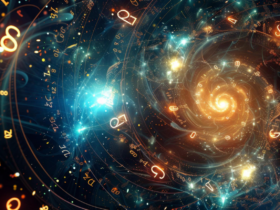At first glance, numerology and ontology might appear to belong to separate realms—numerology rooted in ancient esoteric traditions that assign meaning to numbers, and ontology, a branch of philosophy, concerned with the nature of being itself. Yet when brought into conversation, these two systems offer a profound way of exploring what it means to exist, both individually and universally.
The Ontological Impulse in Numbers
Ontology asks: What does it mean to be? What is the essence of being human? Numerology, while often used to understand personality or predict life patterns, addresses similar questions – though through symbolic structures and vibrational interpretations. Numbers in numerology are more than digits; they represent states of consciousness, archetypes, and energies that reflect how being manifests.
For instance, consider the Life Path Number, which is often referred to as the “blueprint” of an individual’s journey. A person with Life Path 6 may live through service, harmony, and responsibility, reflecting an ontological position of being-for-others. In contrast, a Life Path 9 may suggest a being defined by transcendence, universal compassion, or the relinquishing of ego.
Numbers as Archetypes of Being
Each number can be understood as a symbolic answer to ontological questions. What does it mean to act (1)? To relate (2)? To express (3)? To build (4)? To explore (5)? To nurture (6)? To seek (7)? To master (8)? To let go (9)? These are not merely traits; they represent modalities of existence – ways of being in the world.
From this angle, numerology becomes a kind of existential map. It suggests that each individual is born into a particular vibrational framework that informs how they experience life, others, and the self. This doesn’t negate free will, but rather complements it with the understanding that existence flows through patterns as well as choices.
Related: How the Laws of Physics Relate to Numerological Principles

Being as Vibration
Ontology often wrestles with the abstract – what is the self, what is reality, is being fixed or fluid? Numerology offers an experiential answer: being is vibration. Numbers are not rigid labels, but energetic signatures. A person isn’t a 5 in a literal sense; they are experiencing life through the lens of the 5 energy – change, freedom, curiosity. Their being is shaped by the rhythm of that number.
This vibrational view aligns with certain philosophical ideas, especially in Eastern thought, where being is seen as dynamic, relational, and interconnected. Numerology, in this way, becomes a poetic form of ontology – describing being not through logic, but through resonance.
Bringing the Systems Together
By blending numerology with ontological inquiry, we begin to ask deeper questions:
-
Am I living in alignment with the energy of my core numbers?
-
Do these vibrational patterns reflect how I truly am, or how I’ve been shaped to be?
Related: How Numerology Predicts the Longevity of Friendships
-
Can numbers offer insight into not just my path, but my essence?
Rather than offering final answers, this union opens a doorway. It encourages us to engage both the symbolic and the philosophical – to read our existence not only through introspection, but also through pattern, intuition, and frequency.
Conclusion: Being as a Numbered Mystery
To be is to exist within a certain framework – and numerology offers one such framework that invites contemplation and self-inquiry. When we read numbers not just as predictive tools but as ontological metaphors, we begin to see that being itself may be both patterned and mysterious.
In the end, perhaps numbers don’t define who we are – but they help us remember what being feels like when we’re in harmony with ourselves. Through the gentle architecture of numerology and the deep questioning of ontology, we discover that we are not just beings who have numbers – we are beings who resonate through them.
Related: Numerology and Soul Healing: Understanding Your Core Wounds Through Numbers





















